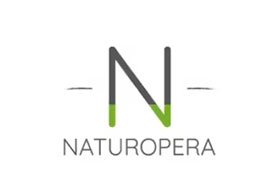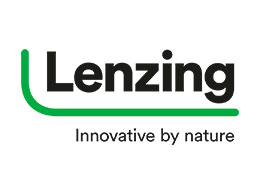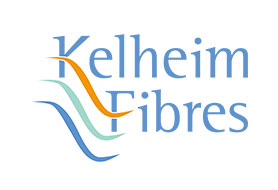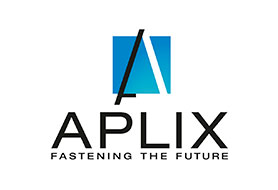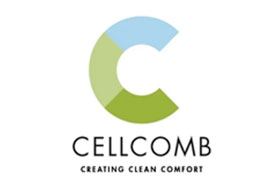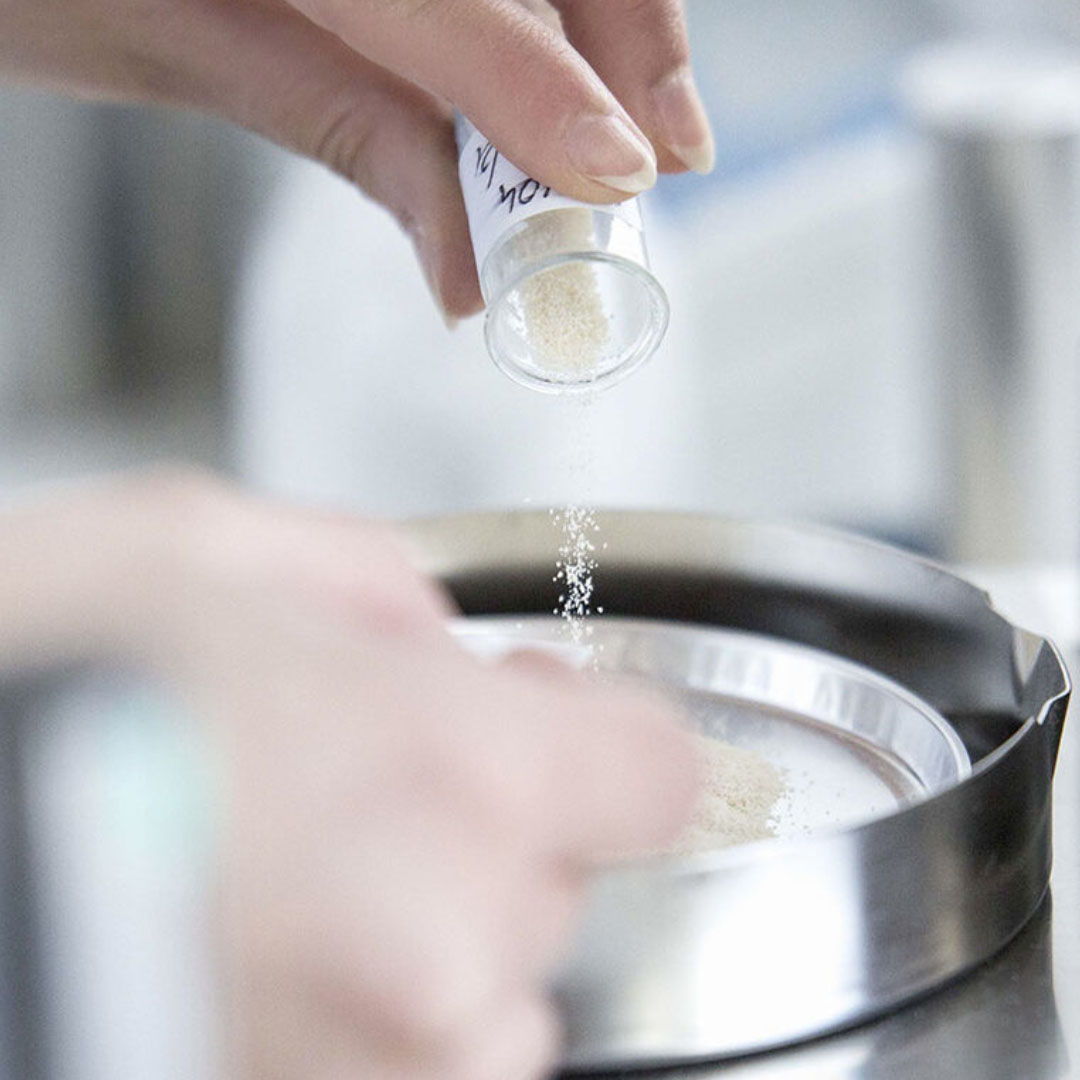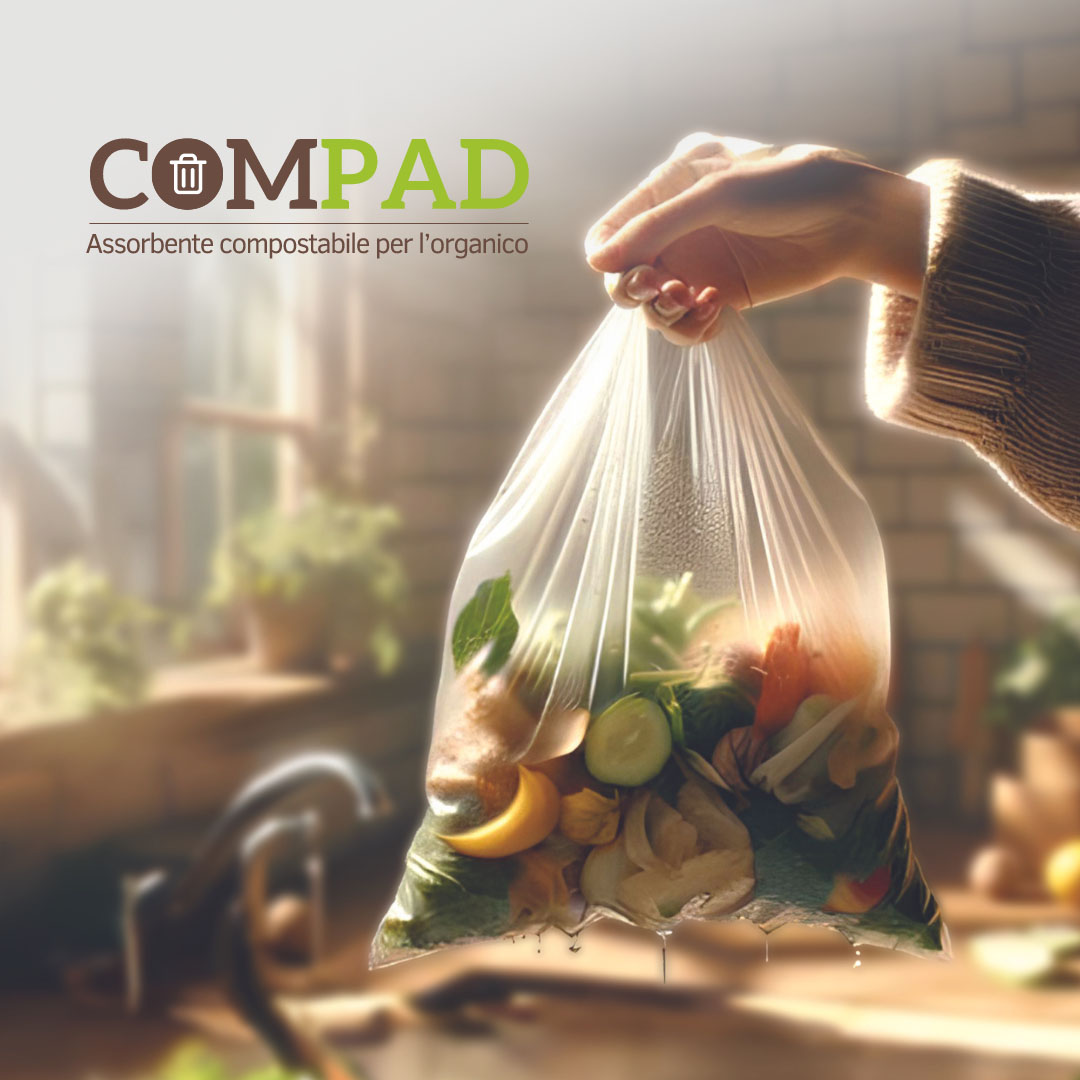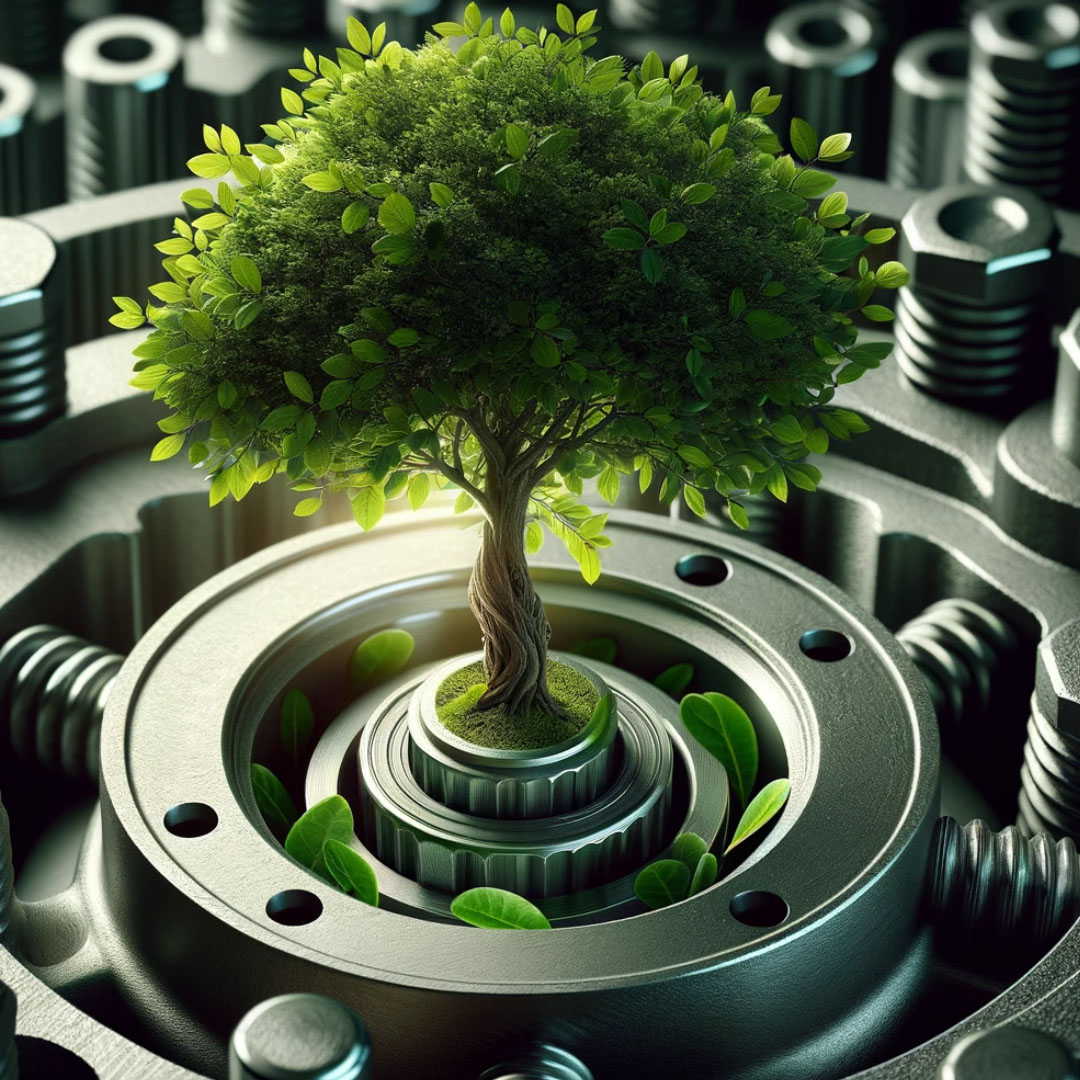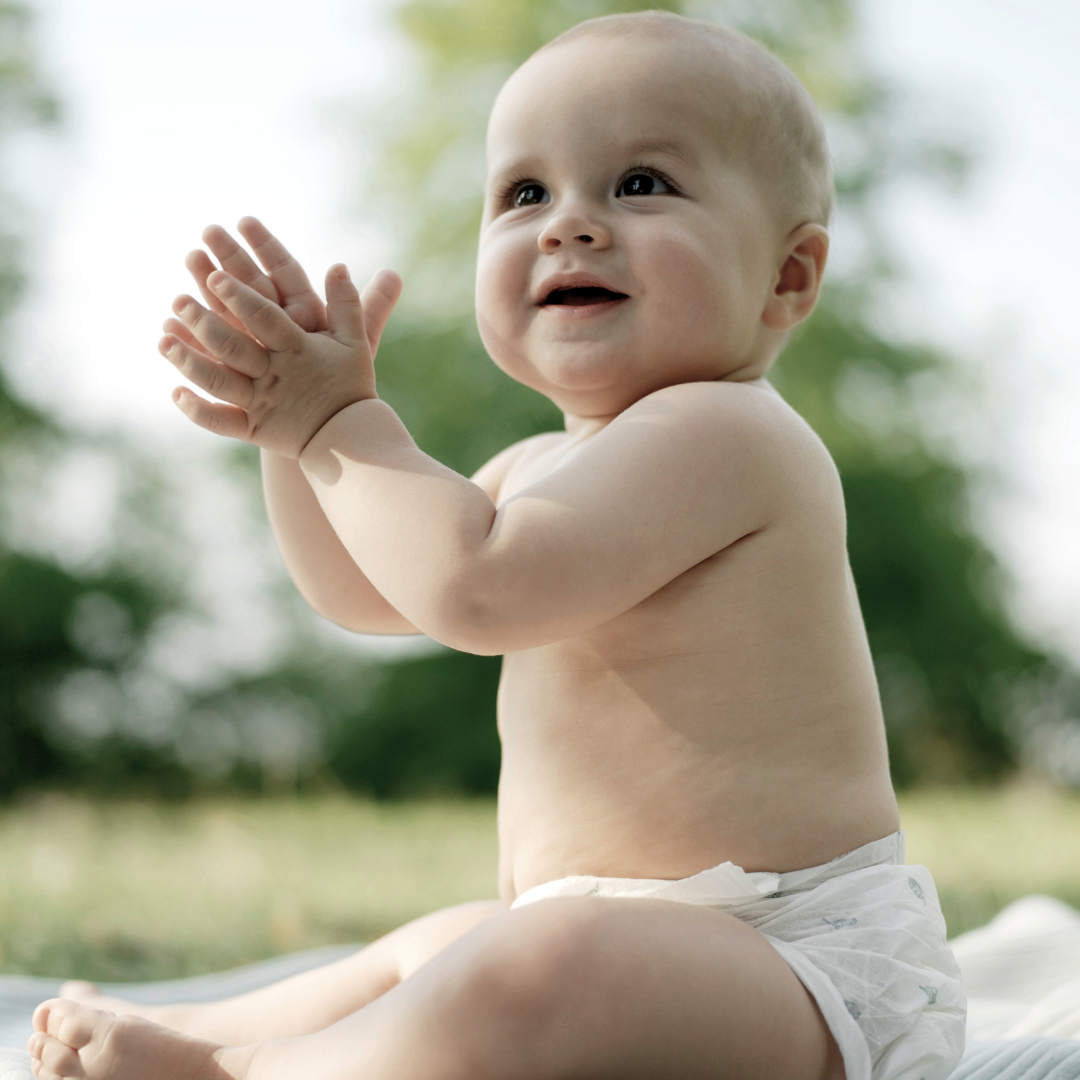
Hygiene industry looks to the future: Andritz’s bio-based concept baby diaper with Magic
Andritz, in cooperation with Magic and other key players in the hygiene industry, developed a revolutionary bio-based baby diaper concept.
On a global scale, each year more than 140 billion traditional disposable diapers are used and disposed of, generating millions of tonnes of waste.
It is estimated that each child uses an average of about 6,000 nappies before they are fully potty trained. This waste will take at least 500 years to decompose, and this time corresponds to a lifetime of about 20 generations.
Collaboration between top companies: shaping the future of eco-friendly baby diapers together.
Features and benefits of bio-based diapers and Spongel contribution
The concept diaper is called ‘BIO-BASED CONCEPT BABY DIAPER‘: it is made of 90% bio-based materials, which guarantee its sustainability and effectiveness in terms of absorbency.
Among the various components is SPONGEL, the biodegradable and compostable super-absorbent powder patented and produced by Magic.
It is inserted into the absorbent core and guarantees similar absorbency capacity to traditional SAP, but with the advantage of significantly reducing the environmental impact of the finished product.
- Elastic elements and closing: bio-based spunlace nonwoven and bio-plastic hooks
- Leg cuff: spunlace nonwoven with hydrophobic MMCF
- Top sheet: spunlace nonwoven with a mix ok hydrophobic e and hydrophilic MMCF
- Acquisition distribution layer: spunlace nonwoven with a mix ok hydrophobic e and hydrophilic coarse denier MMCF
- Absorbent core: fluff pulp and 85% bio-based SAP (SPONGEL)
- Back sheet film: starch-based bio-plastic film
- Backsheet nonwoven: spunlace nonwoven 100% MMCF
In short, every component of the bio-based diaper is designed to make the product eco-friendly, while maintaining the required performance and comfort for baby care.
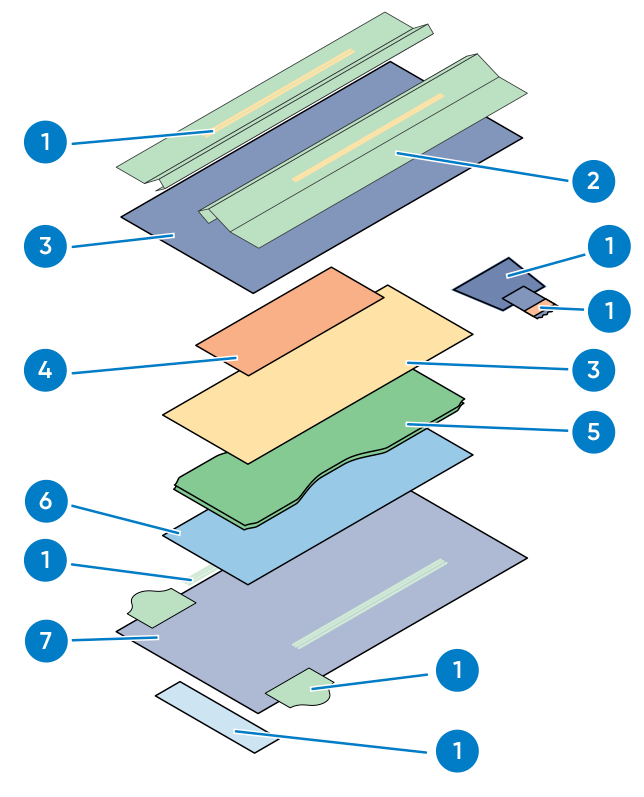
The environmental benefits of the bio-based concept diaper compared to conventional products
Disposable hygiene and personal care products are mainly made of plastic materials, i.e. derived from petroleum.
They are extremely efficient and fulfil product requirements, such as absorbency or skin protection, but do not meet the urgent need for the development of more sustainable products.
The concept diaper developed by Andritz with Magic goes in this direction and offers several environmental benefits over traditional ones, to contribute to a greener future.
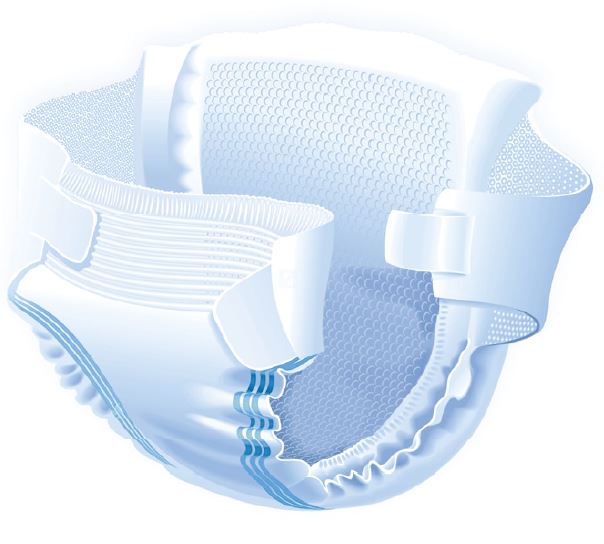
Degradation time: bio-based diapers degrade faster than conventional ones, which take at least 500 years to biodegrade.
Carbon footprint: the production of bio-based diapers consumes less energy and resources. According to some studies, the production of this type of absorbent reduces greenhouse gas emissions by 30-50% compared to conventional diapers.
Sustainable materials: 90% of the components are of organic origin, which means from renewable and sustainable sources. This reduces dependence on oil-derived materials and promotes the use of renewable natural resources.
Use of natural resources: production requires less water and raw materials than conventional diaper manufacturing. For example, the use of cellulose pulp and bio-based SAP in the absorbent core helps reduce the consumption of non-renewable sources.
By mixing technical and statistical data, it is clearly demonstrated how this concept represents a more sustainable alternative to traditional baby diapers, with significant environmental benefits and reduced environmental impact.
Challenges and opportunities: the future of the hygiene industry
The widespread adoption of bio-based baby diapers entails several challenges for the hygiene industry, such as production costs, raw material costs, and logistical issues. However, the future for the industry is promising, provided it continues to invest in research and development to find ever greener and more effective solutions. Cooperation between companies and the adoption of sustainable practices will be crucial to foster positive change in the industry.
Towards a greener future: the importance of sustainable innovation in the hygiene industry
The growing environmental impact of the sanitary hygiene industry calls for sustainable and effective solutions. The concept of baby diaper developed by Andritz and Magic represents a significant step towards a greener future, but it is important not to stop there. Corporate responsibility in promoting sustainable innovation and reducing environmental impact is an ethical must and a collective challenge for the whole industry.
Cooperation between leading companies and knowledge sharing are essential to accelerate progress toward environmentally responsible solutions. Continuing to invest in research and development and adopting sustainable practices is crucial for the industry to evolve and contribute to positive change for the environment and future generations. In this sense, businesses must take responsibility for shaping a more sustainable and respectful future for the planet.



